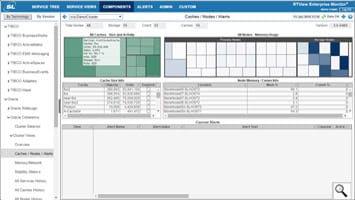

If using commercial versions of Coherence with the Coherence Micronaut framework, there are also events associated to the federation of data between different clusters.Īssigned - This TransferEvent is dispatched when a partition has been assigned to the local member. These events may be due to changes made internally by the backing map, such as eviction, or referrers of the backing map causing changes. UnsolicitedCommitEvent - captures changes pertaining to all observed mutations performed against caches that were not directly caused (solicited) by the partitioned service. TransferEvent - captures information concerning the transfer of a partition for a storage enabled member.


TransactionEvent - events pertaining to all mutations performed within the context of a single request in a partition of a NamedMap or NamedCache, also referred to as "partition level transactions". LifecycleEvent - lifecycle events for ConfigurableCacheFactory instancesĬacheLifecycleEvent - lifecycle events for NamedMap and NamedCache instancesĮntryEvent - events emitted by the mutation of entries in a NamedMap or NamedCacheĮntryProcessorEvent - events emitted by the invocation of an EntryProcessor on entries in a NamedMap or NamedCache SessionLifecycleEvent - lifecycle events for Session instances Type Safety - Micronaut Data will actively check at compile time that a repository method can be implemented and fail compilation if it cannot.ĬoherenceLifecycleEvent - lifecycle events for Coherence instances No Reflection or Runtime Proxies - Micronaut Data uses no reflection or runtime proxies, resulting in better performance, smaller stack traces and reduced memory consumption due to a complete lack of reflection caches (Note that the backing implementation, for example Hibernate, may use reflection). No such runtime translation exists in Micronaut Data and this work is carried out by the Micronaut compiler at compilation time. No query translation - Both GORM and Spring Data use regular expressions and pattern matching in combination with runtime generated proxies to translate a method definition on a Java interface into a query at runtime. The problem is worse when combined with Hibernate which maintains its own meta-model as you end up with duplicate meta-models. This model consumes significant memory and memory requirements grow as your application size grows. No runtime model - Both GORM and Spring Data maintain a runtime meta-model that uses reflection to model relationships between entities.


 0 kommentar(er)
0 kommentar(er)
